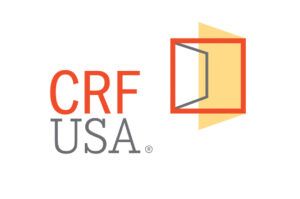By: Alexis Dishman
There are several ways for small businesses to access capital. Here, we’ll explain the most common types of external sources for small business financing (i.e., not personal savings) that can help small businesses grow, hire, purchase real estate, and more.
External financing tends to fall into three categories: equity, debt, and grants. Let’s explain the differences between the three.
Equity Financing
Equity financing means a funding source is giving a business money in exchange for partial ownership or future profits, or using existing assets (real estate, vehicles, equipment, etc.) as collateral. Business owners only draw down equity financing as it’s needed, keeping interest payments low and having a bit more flexibility than debt financing.
Let’s look at a few different forms of equity financing:
Venture Capital
Venture capital comes from individuals or companies capable of making investments in businesses they view as having high growth potential, among other advantages in the marketplace. They typically take a large share of ownership in exchange for their financial investment.
Individual Investors
Rich uncle? Wealthy friend? Or simply a stranger with deep pockets? These are examples of individual investors. Often friends, family or colleagues of the business owner, individual investors typically offer smaller investments but demand less of (or none of) an ownership stake as opposed to venture capitalists.
Crowdfunding
Have you donated to a friend’s GoFundMe initiative? That’s an example of crowdfunding. Individual investors contribute small amounts of money, often via an online platform, to help a company reach its financial goals. Rather than an ownership stake, crowdfunding investors are offered incentives, such as early access to product prototypes, branded merchandise, or discounts, and share a common belief in the company’s potential,
Debt Financing
Debt financing, on the other hand, does not require a stake or interest in your business or property. It is money that must be repaid with interest over a set period. Most small business loans are structured as debt financing instruments. Unlike equity financing, debt financing is usually available through government agencies, Community Development Financial Institutions (CDFIs), or for-profit lenders.
Here are a few different types of debt financing:
Government Funding
The U.S. government has several different loan products, most originating through the Small Business Administration (SBA). These are the most popular forms of small business financing, particularly the SBA’s 7(a) and 504 small business loans.
SBA loans are fixed-rate, fixed-term loans that must be repaid. Certain loan products may also have restrictions on how small business owners can use the proceeds. However, interest rates are generally lower than commercial loans.
State and local governments may also offer debt financing for businesses operating in their community.
As debt-based financing, small business loans involve borrowing money from a lender to help pay business expenses. Typically, small business loans that are not originated by the SBA are available through banks, credit unions, and CDFIs, which are institutions that focus on promoting economic inclusion and community development and often support small businesses by providing capital or other services.
While small business loan terms vary significantly from lender to lender, many small business loans are considered term loans, which allow borrowers to repay the loan amount – with interest – over a set period. Many will also require collateral and/or a personal guarantee that the money will be repaid. There are usually few restrictions regarding the use of loan proceeds.
Grants
Grants are not loans in the sense that they do not need to be repaid. Grants are, essentially, a gift given by government, private sector, or foundation sources to small business owners. But unlike a gift (and most loans), grants can have strict rules about how businesses can use the money. Also, most grants are short-term, meaning that when they run out, businesses must start the process over.
Grant programs are often part of large-scale social and financial initiatives designed to help small businesses and the communities where they operate. Making a strong case for why a business deserves grant funding is essential for a successful grant application. How and why will receiving a grant improve not only the business’ outcomes but social and economic outcomes that are important to the grantor.
Now that you know the most common types of financing for small businesses, which one is the best fit for your business? At CRF, we can help connect you with mission-based lenders who can make recommendations and help you prepare for a government loan, conventional loan, or grant to finance your business.
Complete our pre-application form to get started.
Disclaimer: the information provided on this page is meant for general informational purposes only and may not reflect the most current resources and recommendations available. Please consult with your financial, tax, legal, and other relevant advisors when making decisions about your small business.



